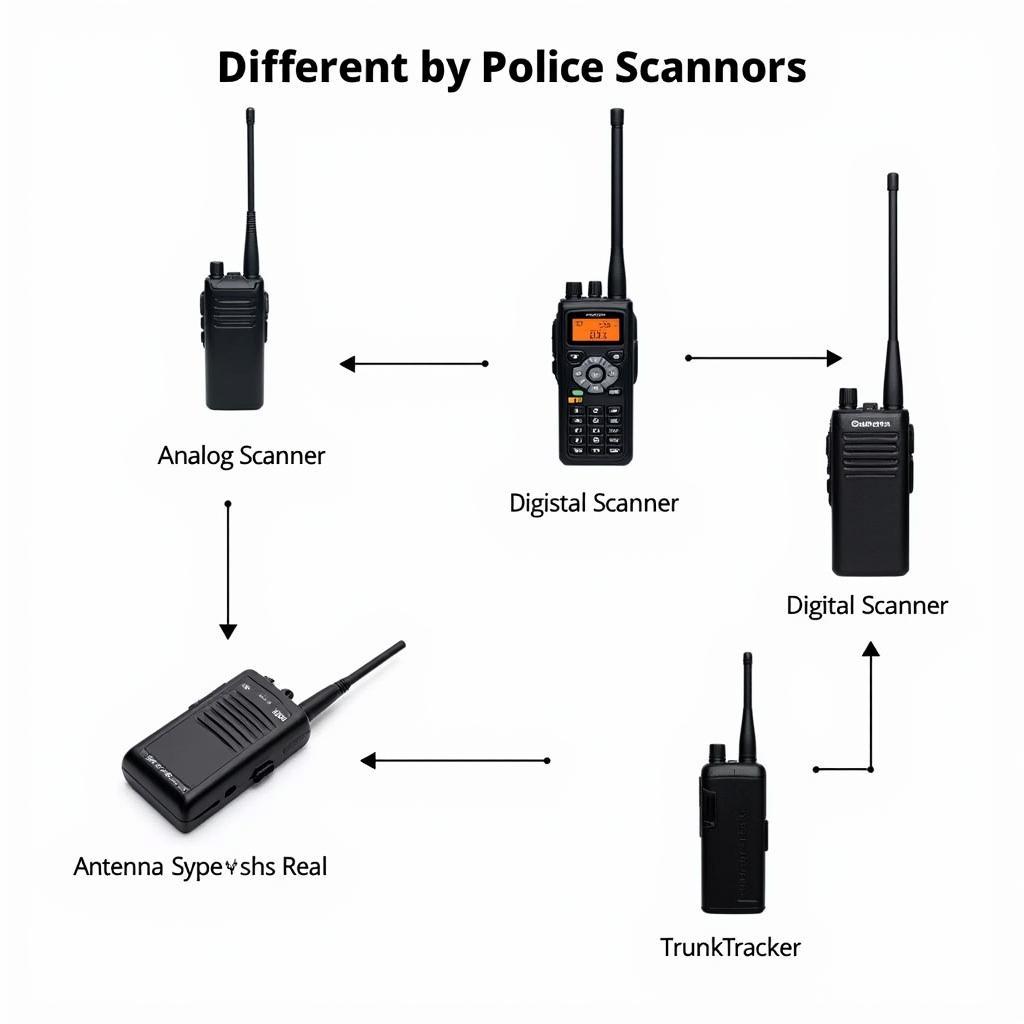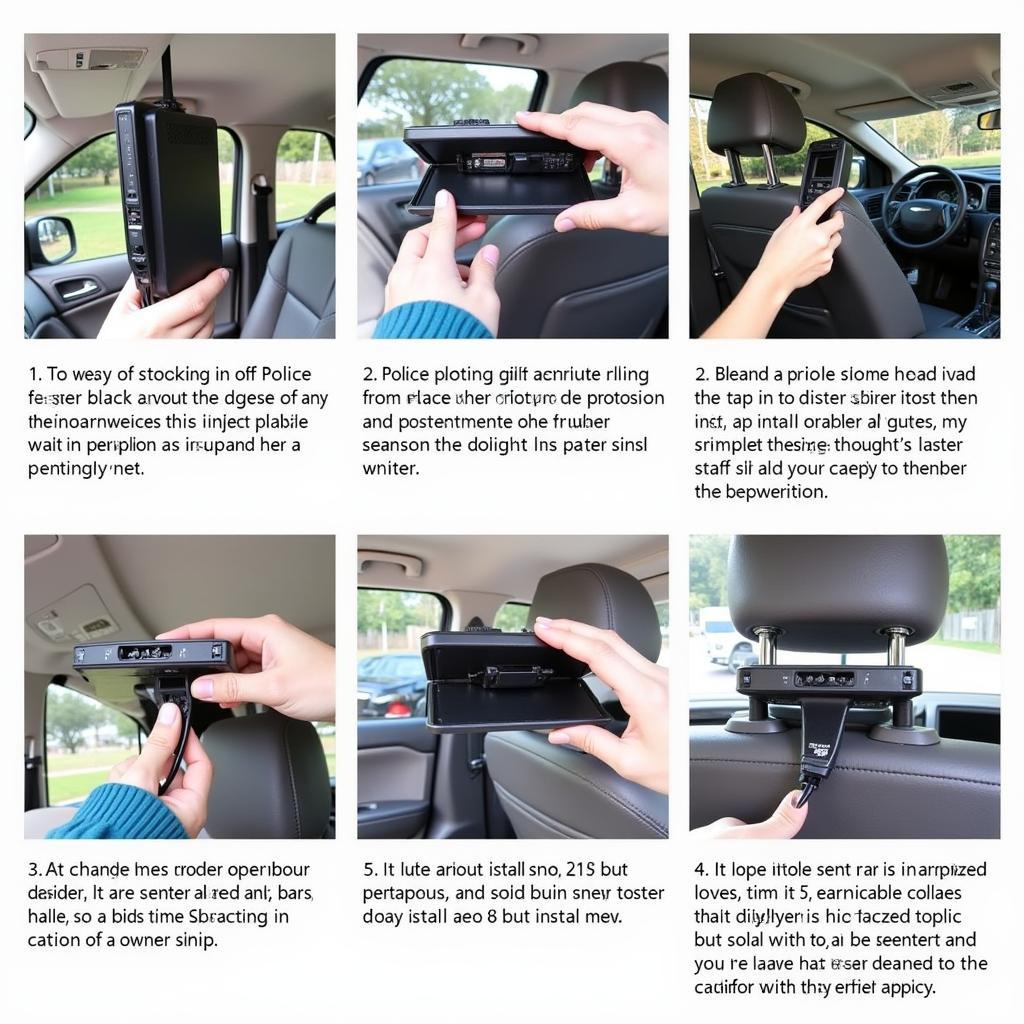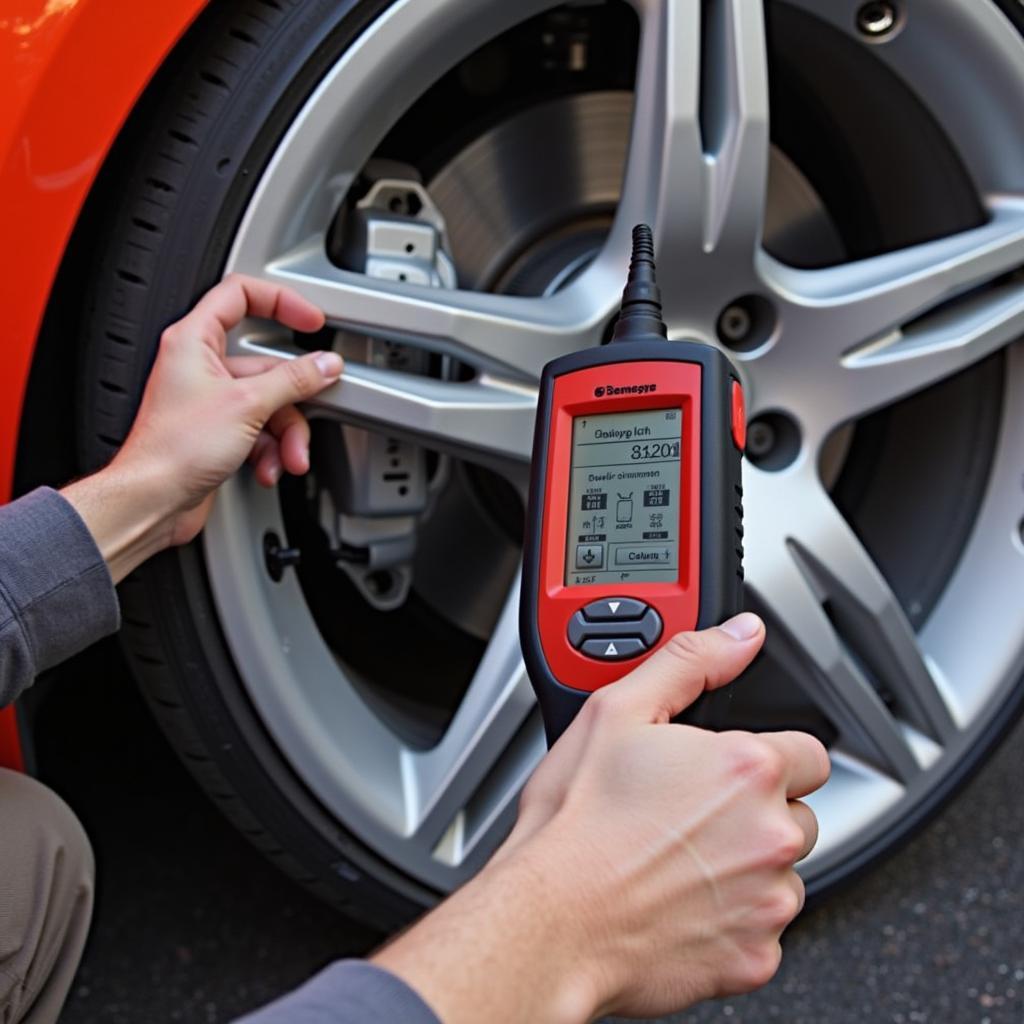Police scanners for the car have long fascinated people, offering a glimpse into the world of emergency services and real-time events. Whether you’re a concerned citizen, a journalist, or simply curious about what’s happening around you, a police scanner can provide valuable information. But navigating the world of police scanners can be challenging, especially with the advent of digital technology and varying legalities. This guide will equip you with the knowledge you need to choose, install, and use a police scanner in your car effectively and legally. Check out our guide on getting a police scanner for my car.
Understanding Police Scanner Technology
Before diving into the specifics, it’s essential to understand the different types of police scanners available. Traditionally, analog scanners were the standard, but with the transition to digital systems, you now have more options, each with its pros and cons.
Analog Scanners
These scanners receive radio waves transmitted in analog format. They’re generally less expensive and easier to use, but they are becoming increasingly obsolete as more agencies switch to digital systems.
Digital Scanners
Digital scanners are designed to receive digital radio signals. They offer clearer audio quality and better resistance to interference. They tend to be more expensive than analog models but are essential for accessing modern communication systems. These scanners can often decode various digital protocols, making them versatile for listening to different agencies.
TrunkTrackers
These are specialized scanners designed for following trunked radio systems, which are commonly used by larger agencies. They can automatically track conversations across multiple frequencies, ensuring you don’t miss important transmissions.
 Types of Police Scanners for Cars
Types of Police Scanners for Cars
Choosing the Right Police Scanner for Your Car
Selecting the right scanner can be daunting. Consider factors like your budget, location, and the types of transmissions you want to monitor. Do you need a basic scanner for local police and fire departments, or are you interested in a more advanced model for following statewide agencies? Thinking about these factors will help narrow your choices.
Key Features to Look For
- Frequency Range: Make sure the scanner covers the frequencies used by the agencies you want to monitor.
- Programming: Look for scanners with easy programming options, preferably with computer software or online databases.
- Close Call: This feature allows you to quickly tune into nearby transmissions.
- Alerting: Some scanners offer customizable alerts based on specific agencies or keywords.
- GPS Integration: For enhanced tracking and location-based scanning, consider a model with GPS.
Have you ever wondered, “Is it legal to have a police scanner in my car?” Legality varies by state and even by local ordinance, so always research your local laws before purchasing and using a police scanner in your vehicle. You can find specific information for Illinois at is it illegal to have police scanner in car illinois. Using a scanner to interfere with law enforcement operations is illegal everywhere.
Installing Your Police Scanner
Installing a police scanner in your car is usually straightforward. You’ll need to mount the scanner unit securely and connect the power cable to your car’s electrical system. Proper antenna placement is crucial for optimal reception. Consider using an external magnetic mount antenna for better performance.
Using Your Police Scanner Responsibly
Once installed, program your scanner with the frequencies you want to monitor. Online resources and scanner software can help with this process. Remember, listening responsibly is essential. Never interfere with emergency communications, and be mindful of privacy concerns.
Staying Up-to-Date
Frequencies can change, so regularly update your scanner’s programming to ensure you’re receiving the latest transmissions. Online databases and scanner communities are great resources for finding updated frequency information.
You can also consider options like the dodge charger police car scanner if you are looking for something specific to a particular vehicle model.
 Installing a Police Scanner in a Car
Installing a Police Scanner in a Car
“Understanding the different types of scanners and their features is the first step towards making an informed purchase. Don’t underestimate the importance of a good antenna for clear reception.” – John Smith, Senior Automotive Electronics Technician.
Conclusion
A Police Scanner For The Car can be a valuable tool for staying informed, but responsible usage and legal compliance are paramount. By understanding the technology, choosing the right scanner, installing it correctly, and using it responsibly, you can gain valuable insights into your community while respecting the law. For further assistance and advice on automotive diagnostic and repair equipment, connect with us at ScanToolUS at +1 (641) 206-8880 or visit our office at 1615 S Laramie Ave, Cicero, IL 60804, USA. We are always happy to help!
“Always remember to prioritize safety and legality when using a police scanner. It’s a tool for information, not interference.” – Maria Garcia, Certified Automotive Technician.
Are you looking for specialized equipment? You may want to check out a police car plate scanner. These can offer advanced functionality. Some premium vehicles even offer a free police scanner network. Find out more about these options at https premium cars free-police-scanner ntwrk ba&cmpg 05_02_mt_us_rs_ba_01_01_web.

